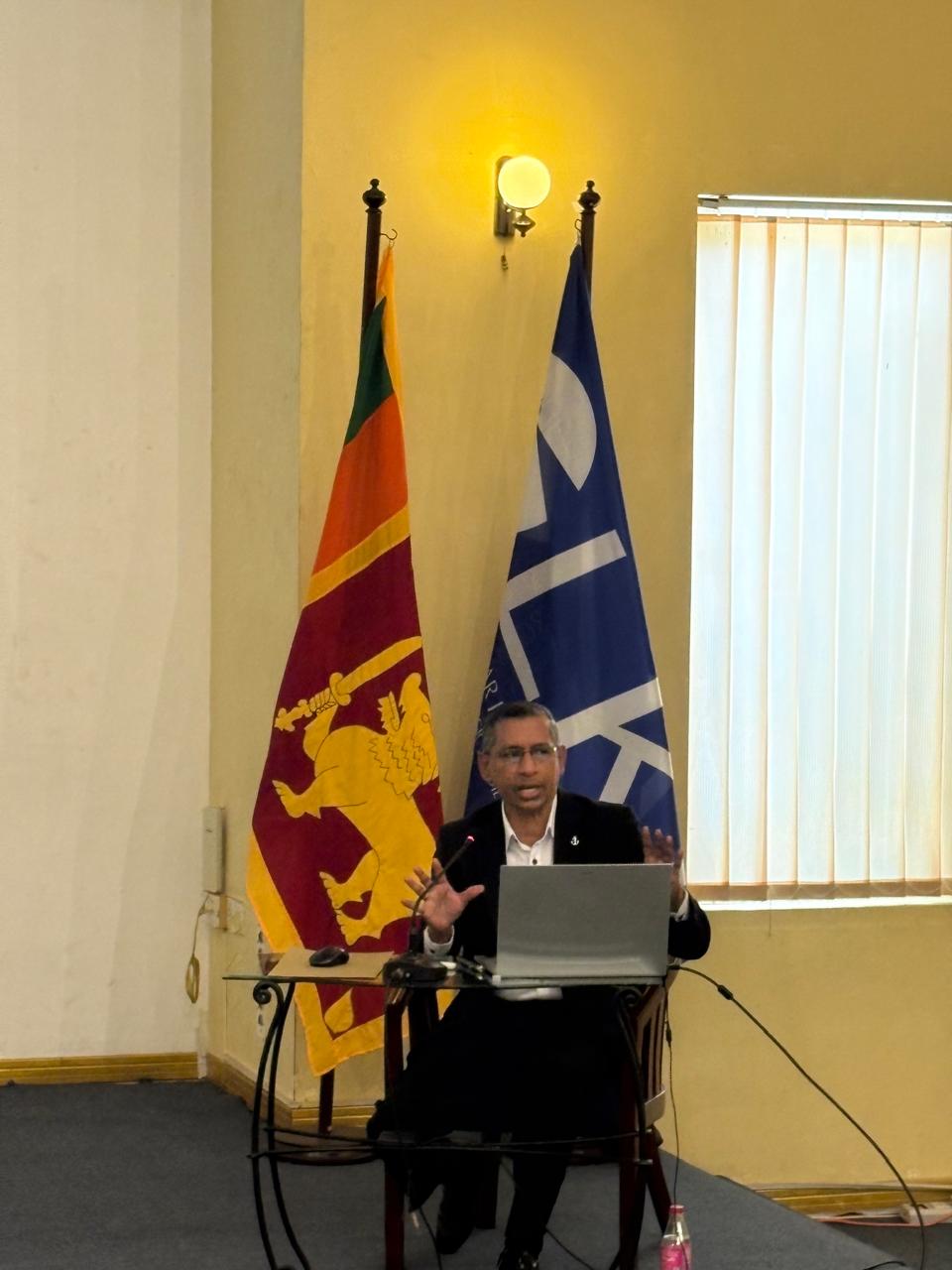October 29, 2025 Reading Time: 3 minutes

Reading Time: 3 min read
The Lakshman Kadirgamar Institute of International Relations and Strategic Studies (LKIIRSS) held the final session for the lecture series titled ‘Admiral’s Morning’ on October 28th at the Lighthouse Auditorium in Colombo. The series first began in September, with the aim of building awareness regarding Sri Lanka’s maritime issues.
The lecture was delivered by the LKIIRSS Board member, Rear Admiral Y.N. Jayarathna (Retd.), former Chief Hydrographer of the Sri Lankan Navy, who presented on the topic of the ‘Bay of Bengal and Gulf of Mannar: Our Strategic Neighbourhood’. He began the lecture with a quick overview of the sessions previously conducted during the course of the series, reminding of the relevant maritime jurisdictions, and then moved on to today’s topic, beginning by identifying the Indian Ocean regions around Sri Lanka; primarily the Arabian Sea to its west, the Bay of Bengal to the northeast, and the Laccadive Sea to its south.
He spoke particularly on Sri Lanka’s neighbourhood, illustrating the various circles of influence surrounding Sri Lanka. The primary circle of influence is well known: India, China and the USA. However, it was analyzed that the second circle of influence comprised of Russia, Pakistan, and Japan, with Bangladesh, Maldives, UAE, Saudi Arabia and Australia populating more outward circles.
Sri Lanka’s neighbourhood based on geographical proximity was also discussed, with the importance of bilateral relations with our nearer geographical neighbours, Maldives, India, Bangladesh and Myanmar.
Emphasis was given to the need to consider the foreign policy goals and strategic interests of neighbours and countries who influence the region when assessing Sri Lanka’s own strategic interests.
Furthermore, we should pay attention to India’s assets in the Bay of Bengal, which include the Madras Atomic Power Station (Kalpakkam) in Tamil Nadu and offshore oil production in the Krishna Godavari Basin in close proximity to our own nation, and the growing strategic importance to India of its territories of the Andaman and Nicobar Islands. Bangladesh’s interest in submarine cable networks, the Maldives’ interests in maintaining Sea Lines of Communication and Myanmar’s maintenance of Ports and Harbours are also of note.
The session also featured an overview of multiple public information sources (such as Russian Oil and Gas Technologies Magazine and Asia Steel Construction website), which grant access to current information regarding various activities conducted within our nautical neighbourhood.
Google Earth was utilised to illustrate the importance of accounting for our own points of strategic interest, like the Norochcholai Coal Power Plant, which generates up to 50% of Sri Lanka’s electricity, and therefore would be an extremely vulnerable station in the case of an attack and should thus be well protected. Similarly, both Sri Lanka and India have strong incentives to protect the Gulf of Mannar and their respective strategic assets within that area.
The audience also raised questions and sought further clarifications on matters disclosed during the session, such as on which circles of influence countries like Iran and France would come under, and requests for further elaboration on the importance of avoiding tensions within the Bay of Bengal to avoid situations such as the current tensions within the nearby Arabian Sea, and the capacity of Southern India’s Nuclear Power Plant and what measures are taken to protect it. The discussion further encompassed inquiries on practical and international relations aspects of this issue, including the possibility of leveraging the Bay of Bengal to strategically further diplomatic ties with India, future plans to build bases and fields in the Lakshadweep Islands, and so on.
This lecture concluded the series of eight (8) lectures under the banner ‘Admiral’s Morning’, conducted for two months at LKI. The lectures covered the very essence of this island State’s maritime interests, inspiring renewed interest and dialogues amongst our audiences and giving a greater understanding of why we should invest in our maritime affairs.